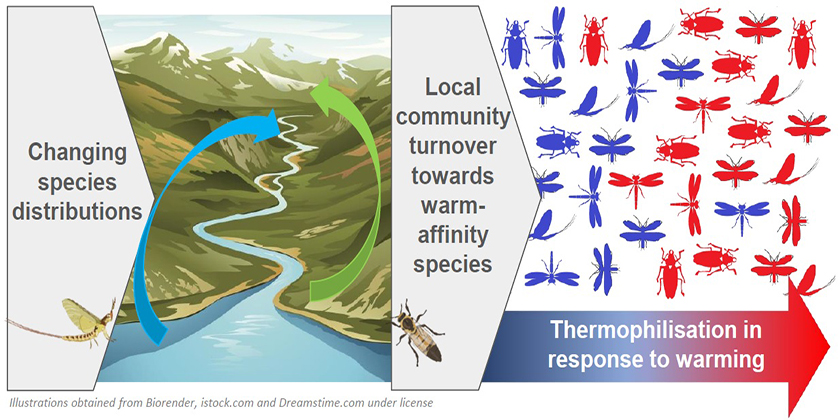Department Aquatic Ecology
Impact of climate change on the biological water assessment (“MSK Stresstest”)

In Switzerland, as in many countries in Europe and around the world, water quality assessment is often based on the use of indices that reflect the presence and absence of indicator taxa, also known as bioindicators. It is already well know that climate-change induced environmental warming is causing species to move both northwards and upwards (in elevation). Such range shifts, in altering the local composition of communities, may affect our interpretation of the biological assessment of water bodies, in particular, if bioindicator taxa are disproportionately affected by warming. We used a species distribution modelling approach to assess the thermal affinities of macroinvertebrate taxa in Swiss streams while controlling for the influence of other environmental variables including water flow velocity, insecticide application rate, habitat quality and land-use. Our model predicted that 70% of macroinvertebrate taxa will experience increased occurrence probabilities under a warming scenario of +2 °C. While increased species richness would also potentially increase the value of various biological indicators, our findings suggest that the three indicators which we focused on here will not be heavily affected by temperature change over the next few decades, if we assume a scenario of modest warming (e.g. +2 °C, Figure 2). Our findings suggest that we can rely on current measures of water quality to remain useful in the coming years in the absence of extreme warming. We invite you to read the first article published from this work in Ecological Indicators for further details.
This work was funded by the Swiss Federal Office for the Environment (FOEN) and was led by Dr. Imran Khaliq. Please see the website of the FOEN Program on Climate Change and Freshwater Biodiversity at Eawag.

